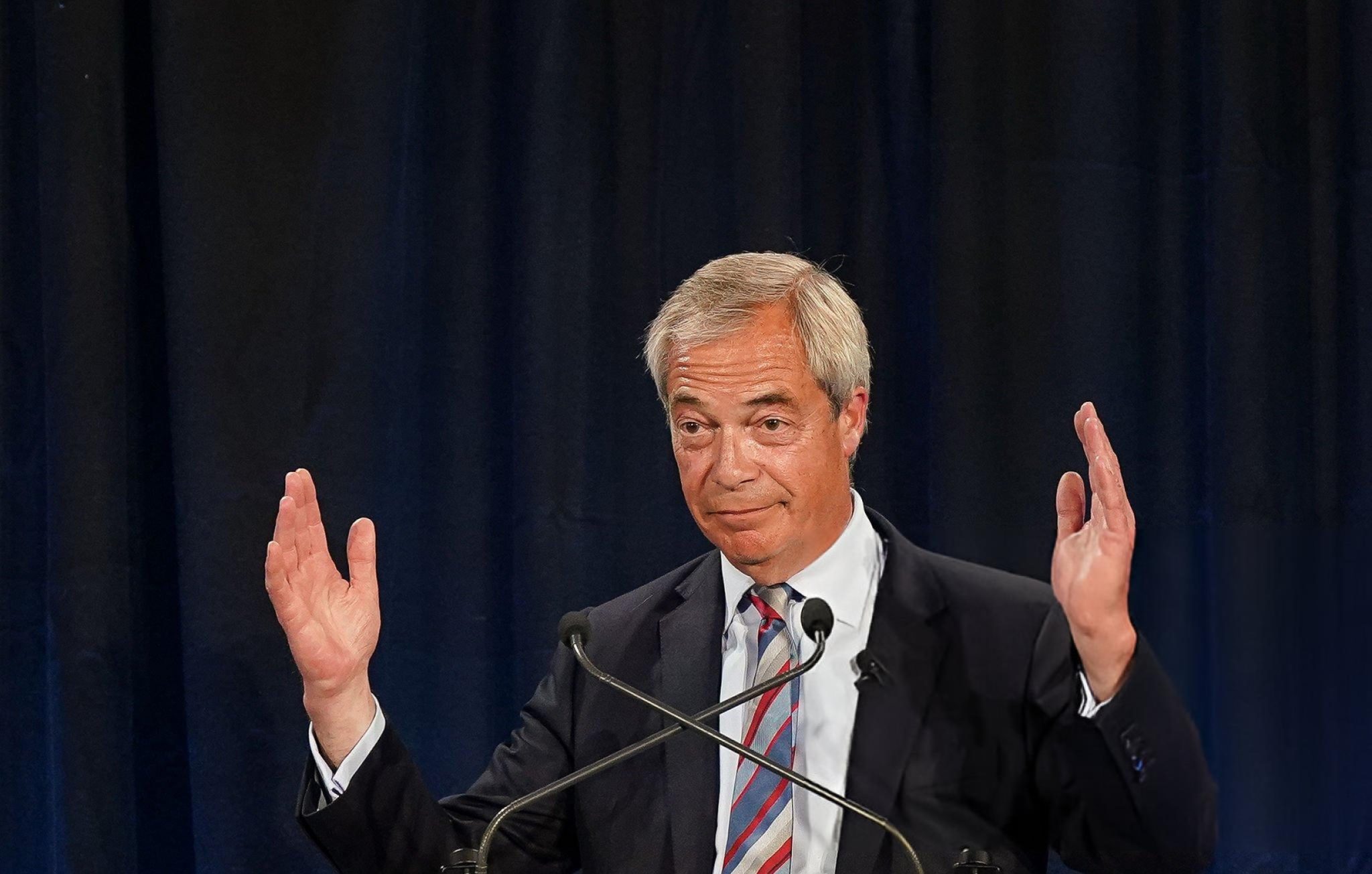Reform UK leader Nigel Farage has confirmed a suite of headline policies in a speech he dubbed the beginning of a “genuine political revolution”, as the party rides a wave of momentum following strong showings in recent local elections.
Speaking in London, Farage delivered a wide-ranging address heavy with criticism of Sir Keir Starmer’s Labour Government, and set out key Reform UK policy positions that he said place “family, community, and country” at the heart of Britain’s future.
Among the most striking pledges was an outright promise to “undo everything Sir Keir Starmer has done in the last fortnight” — a direct reference to two high-profile Government moves: the post-Brexit agreement with the EU and the Chagos Islands sovereignty deal.
The Chagos agreement, which will see the islands transferred to Mauritius with the UK leasing back the vital Diego Garcia military base at a cost of £101 million a year, was described by Farage as “the worst deal I’ve ever seen in my life”. He insisted such a handover undermines British strategic interests and sovereignty.
The EU deal, meanwhile, involves cooperation on border checks, electricity, security, and illegal migration. Farage slammed the arrangement, claiming it “betrays the very essence of Brexit” and compromises the independence voters demanded in the 2016 referendum.
In terms of domestic policy, Farage pledged to reinstate winter fuel payments for 10 million pensioners, a benefit quietly cut under Labour and now reportedly under review due to internal dissent. Farage criticised the cut as “unjust”, saying older people are being left to choose between “heating and eating”.
However, he stopped short of confirming support for the triple lock on pensions, which ensures annual pension increases based on the highest of inflation, wage growth or 2.5%. Farage’s silence on the matter may cause unease among older voters who see the triple lock as a vital lifeline.
Another significant policy announcement was the promise to scrap the two-child benefit cap. Farage clarified that this was “not because we support a benefits culture”, but rather because it helps lower-paid workers afford to raise children. He admitted the move would cost around £3.5 billion annually, calling it “not a silver bullet” but a step towards fairness.
To fund these benefits, Farage reiterated one of Reform UK’s most controversial policies: scrapping net zero. He claimed the Government’s environmental policies are costing the Exchequer over £40 billion per year and are “punishing working people”. The party argues that abolishing net zero targets would provide a fiscal buffer for broader social support.
Farage also promised to end all public sector efforts to promote diversity, equity and inclusion (DEI). Branding DEI initiatives as “ideologically driven and divisive”, he cited figures claiming they cost taxpayers up to £7 billion. Reform UK has long been critical of what it sees as the growth of identity politics within public institutions.
In a further drive to reduce what he calls “bloated bureaucracy”, Farage said Reform would target savings in local and national government, particularly through cutting quangos and tackling what he termed “wasteful council spending”.
On immigration, Farage reinforced Reform’s hardline stance, vowing no more asylum hotels or houses in multiple occupation for illegal migrants. He stressed that anyone entering the UK unlawfully — whether by boat or lorry — would be denied the right to remain.
Finally, Farage announced a tax reform pledge: raising the income tax threshold to £20,000. While acknowledging this would be “expensive”, he defended it as a bold measure to ease the cost-of-living burden on working Britons.
While Reform UK remains without seats in Parliament, the speech signals the party’s intent to carve out a space as the leading voice of right-wing populism in Britain. Farage’s mix of nationalist rhetoric, economic populism, and anti-establishment messaging appears aimed at capitalising on dissatisfaction with the political status quo — and sets the stage for a disruptive presence in the run-up to the next general election.






